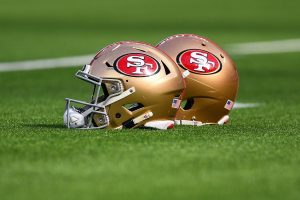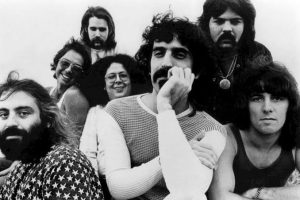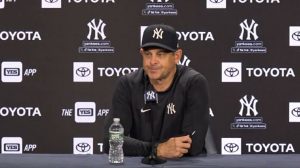
Breaking: Panthers Are Closing In On Deal To Sign $14.5 Million WR And Return Specialist…….
For the first time since Trevor Lawrence in 2021, there is a consensus No. 1 quarterback prospect in the 2024 NFL draft: USC standout and 2022 Heisman Trophy winner Caleb Williams. Given how correlated quarterback performance is with team wins, the team with the first pick often needs a quarterback. The Chicago Bears have that pick via the Carolina Panthers, but they also had a quarterback (Justin Fields) who finished 23rd out of 30 quarterbacks in Total QBR in 2023. Fields is now in Pittsburgh, and Chicago will more than likely select Williams.
That means the quarterback-needy Washington Commanders and New England Patriots, who are picking second and third overall, are in a position to draft North Carolina’s Drake Maye and LSU’s Jayden Daniels. There is also a potentially generational wide receiver prospect available in Marvin Harrison Jr., but because of the outsized impact a quarterback has on team success (see Patrick Mahomes and the Kansas City Chiefs trading now-eight-time Pro Bowl wide receiver Tyreek Hill to the Miami Dolphins, then winning back-to-back Super Bowls), it is likely that the Commanders and Patriots will both select quarterbacks.
In doing so, they will hope they land this year’s C.J. Stroud. ESPN Radio’s “Unsportsmanlike” host Evan Cohen posted on X that ideally, you should “draft a QB when you want one, so you never need one.” The Chiefs with Mahomes and the Green Bay Packers with Jordan Love provide a strong case for Cohen’s point. But Stroud won Offensive Rookie of the Year and led the Houston Texans to the AFC South title, so if the quarterback pick is right, it can work out even if it is made out of necessity.
Then there are Michigan’s J.J. McCarthy, Oregon’s Bo Nix and Washington’s Michael Penix Jr., who could go in the first round to any of the teams after the third pick that might be looking for a change at quarterback, such as the New York Giants (No. 6), Minnesota Vikings (No. 11) and Denver Broncos (No. 12). McCarthy has been mocked as high as No. 4 overall. Finally, Oklahoma’s Spencer Rattler is a potential Day 2 pick who could end up on a team looking to upgrade its backup quarterback.
With the above background, we present this year’s QBASE 2.0 projections for the 2024 quarterback class. QBASE 2.0 is a combination of Andrew Healy’s (2015) original QBASE model and Olbrecht and Rosen’s (2018) functional mobility model. It factors in a quarterback’s college passing statistics adjusted for the quality of his teammates and opponents, as well as the number of years he started in college. It also incorporates his rushing ability (see Daniels), and while it rewards improvements over time (Daniels again), it penalizes one-year wonders (once again, Daniels).
The quarterbacks below are listed in order of ranking on a consensus big board, and interpreting each quarterback’s projection is straightforward. A value of 0 Total defense-adjusted yards above replacement per attempt (TDYAR/A) is replacement-level, whereas any value over 1.5 is indicative of a Hall of Fame career. We run 50,000 simulations to provide a distribution of the number of times that each quarterback falls within a particular range. Here are our 2024 projections.
Williams is the consensus top quarterback in this draft for good reason. He won the Heisman Trophy in 2022 and followed it up with a very strong 2023. He threw for more yards per attempt (9.36) and had a higher completion rate (68.6%) than he did in 2022, despite USC’s overall struggles. He has an elite arm and exceptional playmaking ability, which is reflected in both his passing and his rushing numbers. In addition, he has a consistent track of success, excelling ever since he took Spencer Rattler’s starting job at Oklahoma in 2021. If the Chicago Bears decide to draft him first overall, QBASE raises no objection.
Maye is viewed by many as the second-best quarterback prospect in this draft. However, QBASE is more skeptical, because relative to the other prospects, his college statistics were not that impressive (for instance, his 63.3 completion percentage in 2023). In addition, Maye was only a two-year starter, and his 2023 performance regressed relative to 2022.
Yes, there were circumstances at the North Carolina program that may be responsible for that decline, such as the departure of Maye’s top two receivers for the NFL (Josh Downs and Antoine Green). And there are quarterbacks with relatively lackluster college statistics who have excelled in the pros, such as Josh Allen. Maye’s great arm talent and skill make him a strong candidate to do so. But college statistics are correlated with NFL success here, so Maye’s projection is lower than it would be otherwise.





